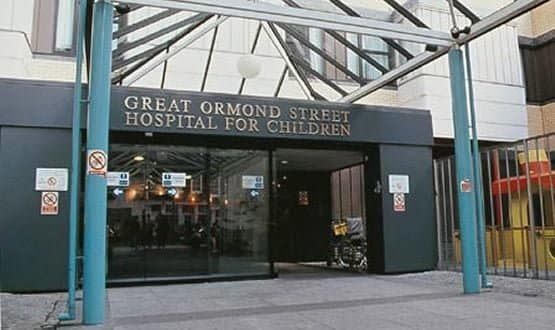Great Ormond Street Hospital for Children is one of six leading European children’s hospitals to collaborate on the PHEMS project, aiming to revolutionise how children’s health data is managed and used to help advance research and innovation in the field.
The paediatric hospitals as European drives for multi-party computation and synthetic data generation capabilities across clinical specialities and data type project – shortened to PHEMS – is set to run until September 2026. It has received a total of €7m in funding from the Horizon Europe programme and from UK Research and Innovation.
The project will explore the development of data collaboration in a way that protects patient information. It aims to overcome the barriers that currently hinder collaboration on health data between different countries. It will develop and validate a decentralised health data ecosystem, supporting the analysis of health data across geographical borders, while the data remains in its original location.
By doing so, it can play its part in assisting the development of new therapies for children, the assessment of care outcomes and the advancement of new technologies, such as AI, in healthcare for children.
Katariina Gehrmann, director of digital and innovation services at HUS New Children’s Hospital in Helsinki, Finland, which is leading the consortium, said, “We will enable European collaboration on health data by aligning ethical and legal requirements of leading European paediatric hospitals with the needs of data users. This ensures that researchers can benefit from rich datasets and advance scientific research in paediatrics while the patient’s rights and data privacy remain protected.”
The collaborative project will achieve this by developing new technological solutions to allow authorised access to health data at multiple locations. It will also develop shared rules and governance structures, allowing new partners to join and new datasets to be included in the ecosystem.
Great Ormond Street Hospital for Children is leading the first clinical use case, which will benchmark the operational management of cardiology patient pathways in four hospitals. It will be using a standardised data model known as Observational Medical Outcomes Partnership.
Professor Andrew Taylor, director of innovation at Great Ormond Street, said: “GOSH is an international centre of excellence and with our first-of-its kind Data Research, Innovation and Virtual Environments unit we are one of the most digitally advanced hospitals in Europe.
“It is exciting and a real testament to our digital maturity that we are in a position to be part of this project. Working with the other leading European paediatric hospitals, we strive to advance data collaboration to enhance healthcare services for children across Europe, whilst ensuring privacy of patient data.”
Working with Great Ormond Street is HUS Helsinki University Hospital (Finland); Erasmus Universitair Medisch Centrum Rotterdam (Netherlands); Azienda Ospedaliero-Universitaria Anna Meyer in Florence (Italy); Bērnu klīniskā universitātes slimnīca (Latvia); and Hospital Sant Joan de Déu in Barcelon (Spain). The PHEMS consortium also includes three technology partners: Tieto Finland Oy (Finland), Aridhia Informatics Limited (UK) and VEIL.AI Oy (Finland) and two professional services partners: The Hyve B.V. (Netherlands) and Genesis Biomed (Spain).


24 January 2024 @ 09:40
Will there be a clear opt-out for anyone who doesn’t want their health data to be shared in this way?